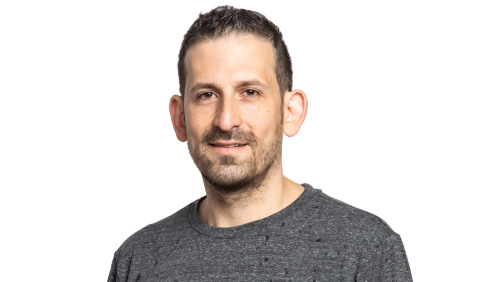
Opinion
As Israeli tech ecosystem matures, the meaning of exit evolves
"Despite challenges, Israel's tech ecosystem continues to grow and break records. But as companies stay private longer, pursuing larger outcomes, our financial infrastructure must adapt," writes Ophir Reshef, partner at Israel Secondary Fund, as Israel's next $100B tech leaders demand a new liquidity playbook.
Seventeen years ago, I made my first venture capital investment in Wix. It turned out to be one of the greatest success stories: an IPO at a $650 million valuation in 2013, viewed as a landmark event for Israeli tech.
Last year, Wiz turned down a $23 billion acquisition offer from Google, only to be acquired last month for $32 billion. 50 times larger than Wix's exit value! This 50 times increase in exit size, which I believe will turn into 100 times plus in the next decade, is partly a global and partly a local phenomenon.
Globally, tech adoption among consumers and businesses, evolving business models, and market concentration have led to gigantic outcomes. The top six US public companies are all tech, with market caps from $1 trillion to $3 trillion.
Locally, Israeli tech has progressed from "Startup Nation" to "Scaleup Nation". There are more serial entrepreneurs aiming higher, more seasoned executives helping realize their dreams, and far more investment in Israeli tech, with over $12 billion invested in 2024 versus $1.2 billion in 2010.
In this piece, I explore the various company strategies to pursue the largest possible outcomes, and why our financial infrastructure in Israel must evolve to support this next stage of tech maturity — one where the real value is often created through independence and patience.
With the prize so large, growing tech companies often take the route of investing aggressively to achieve market leadership. Growth tends to compound exponentially, meaning most value is created in maturity years rather than at inception. Wix created $650m of value from its founding in 2006 to IPO in 2013. Yet in the following seven years, it added almost $20 billion of value!
This strategy is not without risks. The tech landscape is dynamic and competitive; changes in macro, competition, regulation, and consumer tastes can rapidly erode seemingly "safe" value. SolarEdge, a highly successful company, hit all such adversities at once, leading to a 97% decline in value from $20 billion to $600m in 18 months.
Given these risks, even promising tech companies are tempted to accept acquisition offers. Acquisitions create certainty and immediate rewards. We can't know what would have happened to Chromatis (acquired by Lucent for $4.8 billion in 2000) or Habana Labs (acquired by Intel for $2 billion in 2019) had they remained independent, but given these companies failed to deliver on their promise as part of the acquirer’s business, they would likely have failed as independent companies as well, missing out on the massive acquisition value.
Personally, my only venture capital loss was in a company that declined a great acquisition offer, only to find out later that they were not able to adapt to new developments in the market.
Yet, maximizing value often means declining acquisition offers and continuing independently. Sometimes this leads to better offers (like Wiz). Sometimes, outcomes worsen when companies fail independently.
But rarely, a company remains independent and wins BIG, creating enough value to compensate for all failures. Consider Mellanox, acquired by Nvidia for $6.9b in 2020 — had it remained independent, today its networking technology for AI data centers would likely make it worth roughly $100 billion, equivalent to eight years of VC investments in the entire Israeli tech ecosystem!
But there is a growing issue in Israeli tech: financial structures don't support continuing as an independent company.
Once successful, founders find most worth tied to illiquid stock, and VCs operating on 10-year cycles face pressure for earlier returns before companies reach full potential. Given scarce liquidity options, both are incentivized to take rare liquidity opportunities, creating premature exits when companies are hitting stride, leaving billions in future value behind.
For Israel to cement its position as a global tech power, we need the financial infrastructure to drive incentives toward larger opportunities.
Three mechanisms provide shareholders with liquidity to avoid premature M&A:
IPO: The most luxurious path. Public markets offer the highest valuations; shareholders decide when to liquidate; it provides liquidity for existing and future employees via RSUs; and management retains control.
The issue is scarcity — only 40 tech IPOs on US exchanges in 2022-2024. The qualification threshold is higher than ever, taking companies 12 years on average to IPO. Mobileye IPO-ed after 15 years, while candidates like Via, Appsflyer, and eToro are 14 plus years old — too long for founders and early VCs.
Private equity majority transactions: PE funds buying majority stakes let shareholders take partial liquidity while retaining upside. Francisco Partners acquired MyHeritage for $600m, letting shareholders keep their stakes. PE transactions have grown to 11,000 US companies (5.5 times growth since 2000) while public companies declined from 7,000 to 4,500. The issue with PE is that often, it comes with changes in strategy, management teams, and shifts towards profitability earlier than necessary.
Secondary transactions (sale of minority shares in private companies) allow founders, employees, and investors to get liquidity without requiring a company sale, public offering, or relinquishing control.
For founders, this means pursuing big dreams with financial freedom that reduces pressure for premature exits. For employees, it transforms paper into wealth, and helps private companies compete for top talent. For investors, it means returning capital to LPs without forcing company sales that may not serve best interests.
Secondary transactions have become highly popular globally, accounting for 71% of VC exit dollars in 2024, according to Tomasz Tungus of Theory Ventures.
Despite challenges, Israel's tech ecosystem continues to grow and break records. But as companies stay private longer, pursuing larger outcomes, our financial infrastructure must adapt. The right mechanisms for partial liquidity and long-term alignment will help ensure our most promising companies reach their full potential.
Ophir Reshef is a partner at Israel Secondary Fund.














